Though Ford would start the 1920s as the invincible market leader, it was General Motors’ Chevrolet sales that finally pushed Ford out of the No. 1 spot in 1927. Due in part to its advertising in magazines like The Saturday Evening Post, General Motors would continue to hold the top slot in all but 5 of the next 50 years.
For more on the auto industry’s early years, check out Post‘s new special collector’s edition, Automobiles in America!
When William Durant and Louis Chevrolet’s Classic Six rolled out in 1912, it was selling for $2,150. But by 1925, Durant was offering models for $695 to lure buyers away from Ford’s inexpensive Model T.
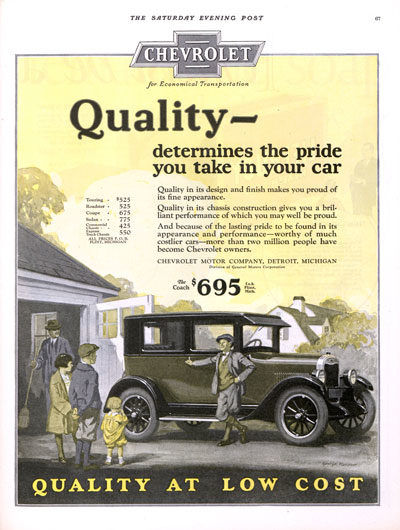
By 1927, Chevrolet had overtaken Ford in sales. Determined to hold onto its lead, the company developed new car features throughout the 1930s, including a new cast-iron, straight-six cylinder engine, hydraulic brakes, V-grilles, and hydraulic brakes.
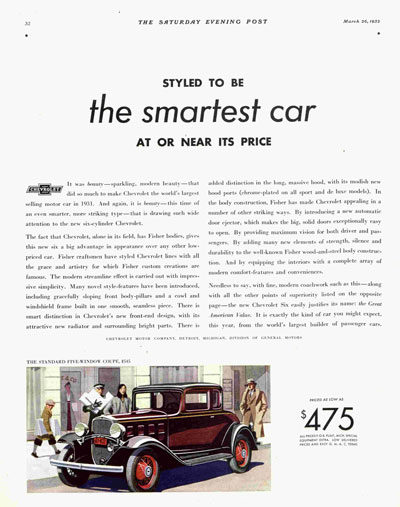
When the company resumed auto production after World War II, Chevy’s new Fleetmaster series seemed little different from its prewar models.
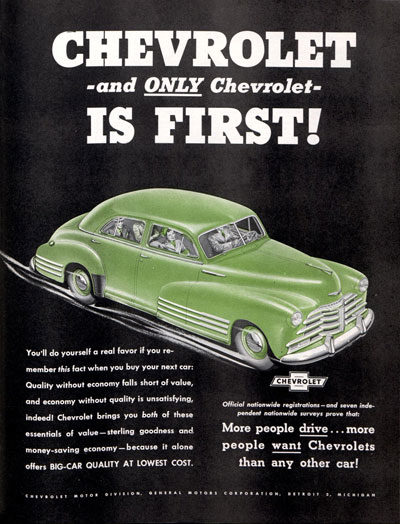
Several new models were introduced in the 1950s: the Nomad, El Morocco, 210, 150, Impala, El Camino, and this classic, the Bel Air with its “zippy, thrifty automatic transmission.”
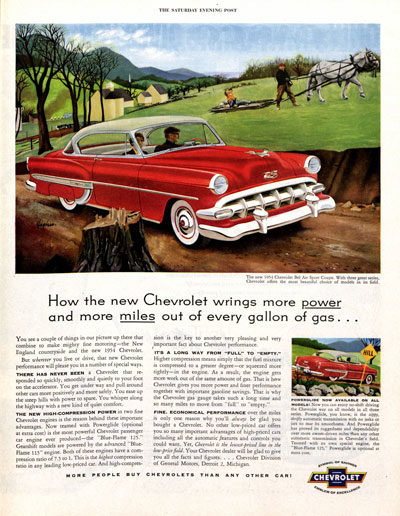
Chevrolet had developed a new “small-block” 162 hp V-8 engine, which could take the Bel Air from 0 to 60 mph in … 12.9 seconds.
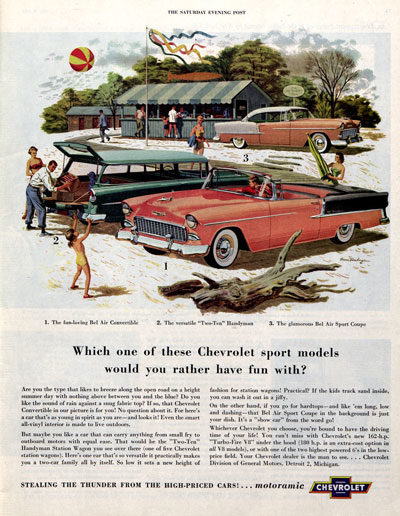
The 1956 Bel Air became even more extravagant with chrome details, including trim that ran from the rear to the front of the car and back again.
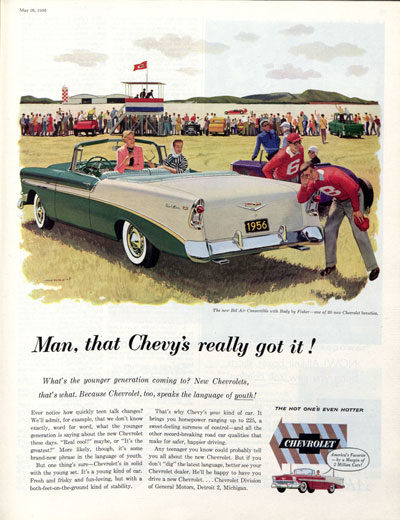
The 1957 Bel Air was destined to become one of the classic American automobiles, highly prized by collectors.
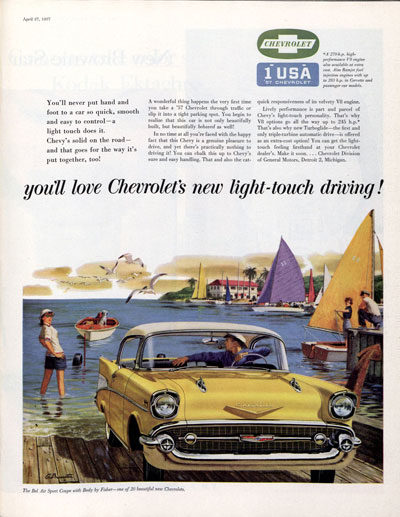
In 1959, Chevrolet needed two pages to show off their new models. They included the Corvette, now in its fifth year of production, and the Imapala — with a longer, lower, wider body.
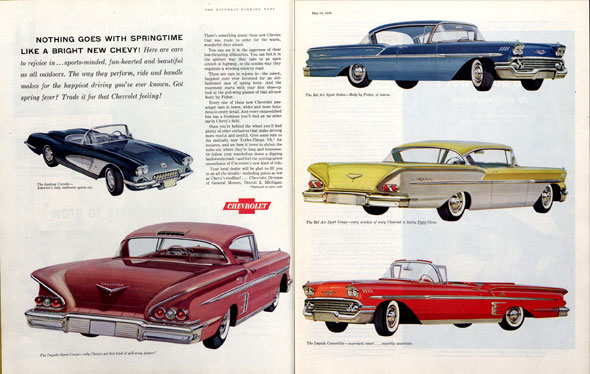
The jutting tailfins of the 1957 Bel Air relaxed into the flattened gullwing by 1959.
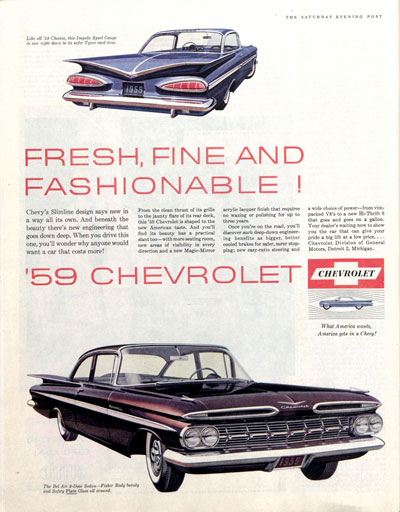
Introduced in 1960, the Corvair featured an air-cooled rear-mounted engine. In his critique of the auto industry published in 1965, Ralph Nader charged that the design made the vehicle unsafe, though subsequent studies have not supported his claims.
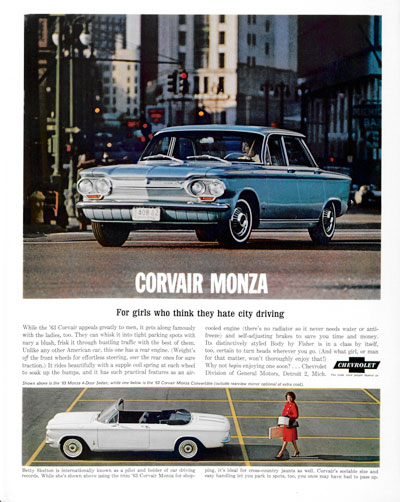
Originally part of the Impala line, Carpice was developed into a full line of models in 1966. With an elegant interior and 325 hp engine, it proved to be a popular model in the luxury car market.
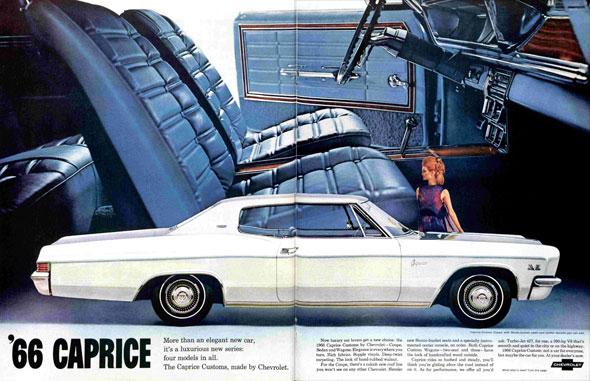
In 1967, Chevrolet introduced the Camaro, one of the first high-performance vehicles subsequently termed “muscle cars.” Marketed as an affordable sports car, the Camaro was Chevy’s response to Ford’s surprisingly popular Mustang.
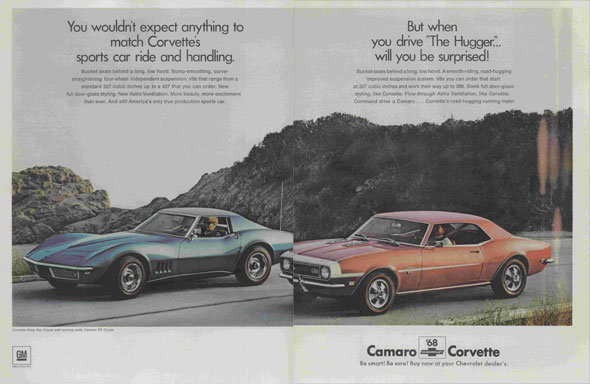
Become a Saturday Evening Post member and enjoy unlimited access. Subscribe now
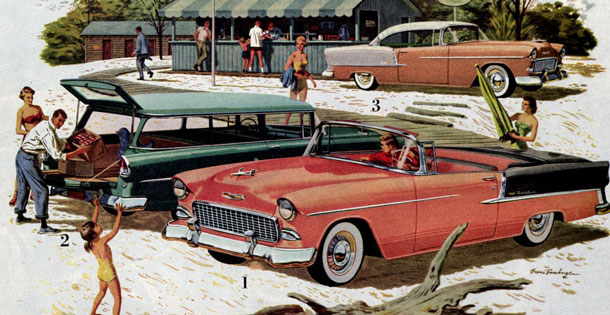
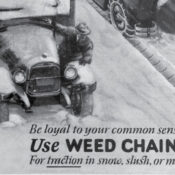
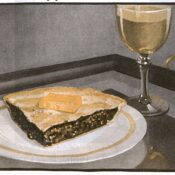
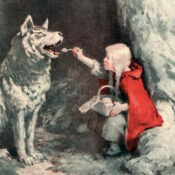
Comments
Just recently received the collectors edition of Automobiles In America and my husband looked at it from cover to cover. He was totally impressed with it and it also brought back some happy memories..Thank You for publishing this collectors editiion.
I recently bought the copy of AMERICAS LOVE AFFAIR WITH CARS. is this Chevrolet issue a seprate Issue? See no price for the Chevrolet collection. I wold like to get the Chevrolet Issue.
Thank You,
Ralph H. Carreira
LOVE this 2nd auto art ad feature Jeff! The ’32 coupe is a favorite, for sure; really beautiful.
It’s interesting to see the ’54 and ’55 models both pictured here. Under the hood and the outside, a huge leap forward. On the ’55 you can see the Cadillac influence on the front fenders and headlights, and the Ferrari inspired grill.
The ’56 facelift was great as you can see, and doesn’t get the recognition it deserves. The ’57 had GM very nervous at the time as it was a 3rd year facelift going up against all-new Fords and Plymouths, its main competitors. Plymouth even stuck the knife in deeper with the “Suddenly it’s 1960!” tag line in their print ads. They were forced to stop it in early ’57.
Chevy, with their heads held high, had a slew of print ads for the gorgeous ’57, treating IT as if it were all new also. I love the gullwing link. The ’59 was indeed wild, as was the Cadillac, but most people forget the Buick was straight out of the Jetsons also in a fascinating marriage of World War II aircraft, rockets and the era’s optimism that made the ceremony possible.
The ’60 Impala was beautiful too, though toned down in the front and back. I heard tell that the ‘jet trail’ siding was there to divert attention away from the back end and on to the sides. Then we have the ’61 Impala that just had a gentle ‘ridge’ (of what had been fins) branching out from the center, cleverly extending around the sides.
The party was over, but some beautiful Impala and Caprice’s came out through ’75 in all of the great body style varieties, including convertibles and four door coupes. The 2 door Caprice and early Camaro ads pictured above prove you really could have an open coupe with the functioning rear windows rolled down. You’re not imagining it.
Cars are a reflection of the times they were produced, then and now. If most now (not just Chevy)look and seem more like generic rent-a-cars, it just goes with what happened to music, movies and pretty much everything else. Fast-paced times combined with Apple stupors means it doesn’t even matter anyway. Today’s cars are safer which isn’t a bad trade off.